- Home
- Sarah Woodbury
Warden of Time (The After Cilmeri Series Book 8) Page 2
Warden of Time (The After Cilmeri Series Book 8) Read online
Page 2
I kept my gaze steady on Bevyn’s face and resisted the urge to lift my eyes to the painted and carved ceiling above my head, struggling against my frustration and anger, and trying not to direct either at Bevyn, who was only the bearer of bad news.
“If I may.” Callum looked at me warily, as if he knew what could have been coming from my lips and wasn’t convinced it wouldn’t at any second, “that could be the good news. We could have forced them to run before they were ready.”
“I hope you’re right about that, but you may need to reexamine your use of the word good,” I said.
Bevyn pounded a gloved fist into the palm of his other hand. “I failed you, sire.”
“No, Bevyn,” I said. “It is I who should have been smarter.”
Up until May, Lee had been lumped in among the malcontents who’d vexed my mother so severely she’d come to me for an intervention. Mike, in particular, had been nothing but trouble from the first moment he’d arrived in the medieval world. For most of the past year, the three men had lived at Caerphilly Castle in Wales with a number of other bus passengers who’d banded together in their disgruntlement.
Not that I could really blame them. Through no fault of their own, they’d found themselves in the Middle Ages, simply because they’d happened to be on the same bus as my mother and sister at a moment when Mom’s and Anna’s lives were in danger. What happened to them wasn’t their fault.
What was their fault was how they responded to the adversity. Being on that bus may have ensured their survival, since the bombing of Cardiff’s city hall and courthouse must have killed quite a few people inside the buildings and on the road, but these disgruntled few didn’t necessarily see it that way. Nor were they in any way thankful for the help they’d received once here. They resented their need to forge new lives and refused to even try to make the best of it.
During the time these discontented passengers had spent under my mother’s watchful eye, Lee, for the most part, had been an enigma to her. With every day that passed, however, Mike had grown more combative. He was a large man, taller than I, and he outweighed me by forty pounds, which made him dangerous when he was drunk. In turn, Noah, Mike’s partner in crime, had spent those same six months at Mike’s right hand, drinking him under the table despite being one-third smaller. Noah had a narrow face and pointed chin—and a wolfish way of looking at a man like he was assessing whether or not to eat him for dinner—or like a rat inspecting a particularly dubious piece of cheese.
Their drinking and carousing had reached a point where my mother demanded that I either throw them into a dungeon, as my father wanted, or try to make something of them. Last May, I’d chosen the latter, in hopes that seeing more of this new world they lived in might assuage their discontent. In truth, I felt guilty about their continued presence in the Middle Ages, knowing that I could take them back to the modern world if I was willing to risk all of our lives to make that transition one more time.
But it was a risk I wasn’t willing to take. It might be the one time it didn’t work. And I certainly wasn’t willing to risk my mother or sister on that chance. What made my decision all the harder was that they all knew it—from the very beginning we’d been honest about who we were and what we were capable of—and it was an honesty we all had to live with, Mike, Noah, and Lee included.
Thus, also at my mother’s urging, I’d taken Lee, the only other single, male bus passenger staying at Caerphilly, into my court too. Within a day of the trio’s arrival in London, however, Mike’s and Noah’s behavior had reached an epic low. In a drunken stupor, the pair had climbed onto the wall-walk and peed off it onto the head of the captain of the garrison. They’d spent two nights in a cell simply to sober them up.
On the third day of their incarceration, with me showing no signs of letting them out, Lee had come to me to speak for both of them. Mike had only ever given me bravado and monosyllabic answers, and the less volatile Noah had risen to a certain degree of sullenness, still without much in the way of forthcomingness. But that day, Lee showed himself to be perfectly polite, sharply intelligent, and in possession of a keen sense of humor. He didn’t smile often, but when he did, it lit his pale face. He’d reminded me of Callum’s friend and confidant, Mark Jones—not in looks, since Lee was six feet tall and thinly muscular—but in attitude.
Lee had sworn to me that from that day forward Mike and Noah would live a reformed life, and if they didn’t, I could conscript them into my newly-established navy. So I’d given the pair one more chance and been rewarded because they had reformed. Or so it had appeared. I couldn’t help thinking now that Mike, Noah, and Lee, like the Three Stooges, had been running rings around me the whole time. Except these three weren’t funny.
Instead of rescuing Mike and Noah from my (and the garrison captain’s) wrath out of the goodness of his heart, Lee had made himself the ringleader of the three men, and their reformation had been only on the surface.
To my credit, I hadn’t entirely bought the idea that they were completely reformed. I’d brought all three with me on this journey to Canterbury out of a growing belief that something wasn’t quite right about them. There had been an innate brutality about Mike and a slyness in Noah that had worried me, and I’d been afraid to leave them alone in London under less watchful eyes. My intuition, unfortunately, hadn’t revealed to me any specifics, or that it was Lee I had to be most wary of, not the other two.
It looked as if my father’s suggestion to toss the trio into the Tower of London would have been the better choice. But even though I’d often wished that Mike and Noah hadn’t been on that bus, I would never in a million years have wanted them dead.
Chapter Three
“What message is that?” Cassie said. “Free Ireland?”
I shrugged. “That’s what it looks like to me.”
Ireland was an ongoing problem. Portions of it had been conquered by Norman barons over a hundred years ago, and the English king had ruled it ever since, taking the title of Lord of Ireland. I’d reluctantly inherited that authority four years ago when I’d become King of England and had been trying to negotiate a graceful way out of ruling it ever since.
“What sucks is that my sympathies are entirely with the Irish,” I said. “I just haven’t figured out how to leave.”
“It would be easier if you didn’t mind your barons rising up against you,” Cassie said.
“And even if I were willing to risk that—which quite frankly I am—I won’t be able to change anything if I’m not the king.”
“Catch-22,” Cassie said.
“To Lee, that might be a pathetic excuse for inaction,” I said. “After my crowning, I put off dealing with rights for women because discrimination seemed too culturally ingrained and difficult to change. It was easier not to address it. This is the same.”
“As always, you’re too hard on yourself.” Callum said. “You have so much on your plate already.”
“That may be, but when will I have less?” I said.
The answer, of course, was never.
Cassie studied the wall, her brow furrowed. “I still don’t get it. How does that symbol on the wall, and that writing, which only Callum understands, free Ireland? Why kill Mike and Noah? What’s the point of any of this?”
“We won’t know until we find him, though it occurs to me that I may know something about Lee that could help us,” I said.
“That’s more than I can say,” Callum said.
“That reminds me—” I gestured to the wall, “—of something Lee said a while back. Several times since he came to London, Lee mentioned the Troubles in Ireland, the ones with a capital ‘T’. When he mentioned them, I made sympathetic noises, but I didn’t want to talk about Ireland with him since it’s a sore point, as you know. I do remember him mentioning some talks that were due to start around the time you left Avalon in the bus.” I glanced from Cassie to Callum. “Do you guys know anything about that?”
Callum frowned. “I do. C
ardiff was to be neutral ground for a meeting of representatives from the Republic of Ireland, Northern Ireland, and England, as well as the EU. The economic crisis had brought some problems to the forefront that needed to be resolved. The negotiations were to begin the week after we left.”
“Maybe that’s why Lee was in Cardiff that day,” I said.
“Are you wondering if he was there as a demonstrator?” Callum said.
“He could have been. It’s clear he doesn’t think much of English control of Ireland,” I said.
“There’s a big difference between demonstrating in front of city hall and murder,” And then Cassie gave a gasp as she realized what she’d said.
A wintry chill settled in my chest, and my breath caught in my throat too. “City Hall.”
Cassie looked from me to Callum. “He couldn’t have—” She broke off.
Callum put up both hands. “Can we put anything past him, given that he murdered Mike and Noah?”
“But if he had something to do with the bombing—” Cassie closed her eyes for a second. “I have never met an angrier man than Lee.”
“Before we get too far ahead of ourselves with this, are we sure that the murders are his doing?” I said, and then at the incredulous looks on my friends’ faces, grimaced. “Yeah, you’re right. I’d be stupid to think otherwise.”
“We must be very careful,” Cassie said. “Armed and dangerous doesn’t quite cover it.”
“We already know about his activities in Wales,” Callum said. “If his anger is directed at David, and if it’s about Ireland, that’s where we start our inquiries.”
“David, he could be gunning for you,” Cassie said.
“He hasn’t tried to murder me yet. He’s had opportunities before. You know he has.” I chewed on my lower lip as I thought. “I’m more worried about my father.”
“You sent a pigeon to Cardiff to warn him that Lee is missing,” Callum said. “You’ve done what you can. Your father will be prepared in case Lee returns to Wales to renew his mischief there. But I think he won’t. He’s up to something else.”
“If that’s true, why murder Mike and Noah? Why now?” Cassie said. “What are we missing?”
“A lot,” I said. “Not even Bevyn saw this coming.”
“Lee could have other plans for you,” Cassie said. “It’s only you, your sister, and your mother who can return him to Avalon. Maybe Lee wants you alive so you can take him back when he’s ready.”
“After he’s wreaked havoc here, you mean,” Callum said dryly.
“It’s odd,” I said. “He never once talked in my presence about returning to Avalon.”
“Mike did,” Cassie said. “He talked about it all the time. It was annoying.”
“But not Lee,” I said. “What if he was glad to find himself here because this is where the conquest of Ireland started? What if he thinks he can change things now so the future never happens?”
Cassie frowned. “He does realize this is a different universe, right? We think of ourselves as time travelers, but we’re really not.”
“He knows,” Callum said.
I ran a hand through my hair, my eyes going automatically to the bloodstained ground where the bodies had lain. I forced myself to turn away. “As important as Lee may be, he must take a back seat to my current and very pressing dispute with the Church. I was due at the Archbishop’s palace an hour ago.”
“I would agree that the dispute with the Church is more important—unless Lee’s sudden departure and your disagreement with the pope have something to do with one another,” Callum said.
“I can’t see how that could be,” I said.
Callum made a rueful face, and I returned my eyes to the ground, silently nodding in acknowledgement that it usually paid to keep an open mind when it came to affairs of state. I looked up again in time to see the identical apprehensive look cross both Cassie’s and Callum’s faces, which would have been comical if the situation hadn’t been so serious.
With the bodies loaded into its bed, the cart headed down the alley towards the cross street. Mike and Noah would lie in a room off the barracks awaiting a more thorough examination by Rachel. It wasn’t a task I envied her. She’d already mounted her horse in preparation for returning to the castle, and Cassie left us to join her. Beyond them, the crowd had moved aside to let the cart pass by, and then Justin replaced the barricade.
“Who found the bodies in the first place?” I asked Callum. Now that everyone else had dispersed to their various duties, he, Carew, and Bevyn were my only remaining companions.
“Jeffries,” Bevyn said, butchering Darren’s name into something barely recognizable. Bevyn’s English was functional, but he hadn’t ever gotten a handle on English names, which he considered bizarre and unnatural. “He and Cobb together.”
Darren Jeffries and Peter Cobb had also been on that bus. While Darren had worked at MI-5 with Callum and stuck close to my mom and sister, even knowing they were time travelers, Peter had been in the wrong place at the wrong time. Fortunately for Peter, he fit right in. He hadn’t worked for the intelligence services, but he’d served in the military in Afghanistan, even doing a stint in the military police. Both men were now part of Callum’s personal retinue.
“Keep them at it.” I put my hand on Callum’s shoulder. “Whatever you’re doing, however this hunt progresses, they are from Avalon and need to be involved. My family brought Lee here. I included him in my court. He is my responsibility.”
“I don’t agree, but I hear what you’re saying,” Callum said. None of the others even blinked any more at my use of the word Avalon as a way to talk about the modern world. We all used it now, time travelers and medieval people alike. With the arrival of the bus, a portion of the truth had literally fallen front and center into everyone’s laps, and there was no more denial: we were from a different world. Fortunately, accusations of witchcraft hadn’t yet been leveled at any of us.
For all that it had always been a fear of ours, that fear arose more from media representations of the Middle Ages than actual fact. While the burning of heretics was common practice in this time, the witch trials that had spread throughout Europe were still over a hundred years in the future. The Spanish Inquisition, which was responsible for tens of thousands of deaths, was another hundred more.
“I should have acted against Lee sooner,” Callum said.
“You did more than I,” I said.
What I didn’t say, because Callum already knew it, was that the best thing about the arrival of the bus last year was that it had brought forty potential friends from the modern world to medieval Wales to share this life with us. The simple fact that we were all stuck here together gave us a feeling of camaraderie. It was natural—and maybe even necessary, given how hard this life could be—to assume the best until someone proved him or herself untrustworthy. I had viewed my three malcontents as an irritation, not a threat, and now my fingers were well and truly burned.
I was reminded again why monarchies were a bad idea. Too much depended upon the whims of a single man—in this case, me—who sometimes didn’t listen as closely to his advisers as he should or listened to the wrong people.
Nicholas de Carew, who’d so far said nothing and wore a noncommittal expression on his face, made a dismissive motion with one hand. “It’s everyone’s fault. We’ve long known about Mike’s and Noah’s discontent. Lee held himself apart at Caerphilly, but we should have been keeping a closer eye on all of them before this.”
Half-Welsh and half-English, Carew maintained a double life in this new world order I’d created. Upon the execution of William de Valence, my father had installed Carew as the Lord of Pembroke, which had been Valence’s title under King Edward. In England, Carew was the Earl of Winchester, with most of his lands in the south and west of the country. Not quite forty years old, he cut a fine figure—tall and broad shouldered—and always wore the latest clothing styles. Today he wore a blue tunic and tight brown breeches tuck
ed into high black boots. To his regret, however, his blond hair was both graying and balding.
Some of my barons had accused me of favoring my Welsh advisers over my English ones, but for all their complaints, only Ieuan and Bevyn were truly Welsh, and they’d earned their place beside me. I relied on their wisdom every day, and I was pretty sure I wouldn’t have had a kingdom to govern at all without their help.
During the two years that Callum had been stuck in the modern world, I’d missed him more than I could say. Not only was he well-educated, smart, and capable, but I valued his ability to see situations clearly. Although he’d taken up the mantle of the Earl of Shrewsbury upon his return to the Middle Ages, he spent most of his time in my court.
As with Carew, I tried not to feel guilty about making him neglect his lands and people—they were by definition my lands and people too—but Callum had a capable steward in our mutual friend, Samuel. And I needed Callum, especially today—and that was before I’d learned about what Lee had been up to during the ten months he’d lived in the Middle Ages.
I looked away, sifting through the interactions I’d had with Lee for anything I might have told him that he could use against me. I hadn’t involved Lee in any confidential plans, but by the simple fact of living at my court, Lee knew more about me and my rule than I would want an enemy to know. He’d been part of my entourage for months, and it seemed he’d been working against me the whole time, just as he’d been working against my father while in Wales. I could only hope that by removing him from my father’s court, I’d short-circuited whatever insurrection he’d been planning there. It may be that we’d inadvertently been just in time.
Unfortunately, even with the Irish fist on the wall, we didn’t know what he intended here in England. Any time over the last three months, he and I could have talked about something that was of lesser importance to me, which I’d since forgotten, but was vital to him.
I closed my eyes, sickened through and through and fighting to put aside my personal resentment so I could deal with what was before me. Controlling my expression was something I’d been practicing. I didn’t need to hide my feelings from these close companions. They would have known I felt betrayed even if I didn’t say anything.

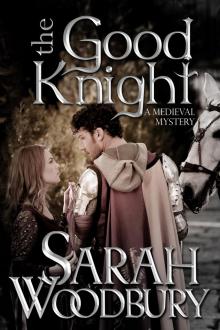 The Good Knight
The Good Knight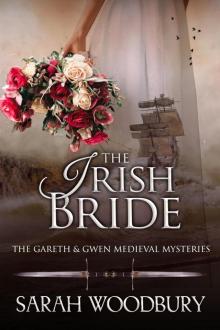 The Irish Bride
The Irish Bride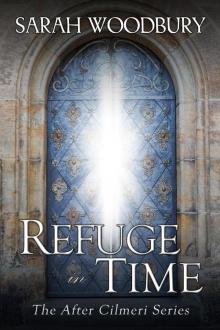 Refuge in Time
Refuge in Time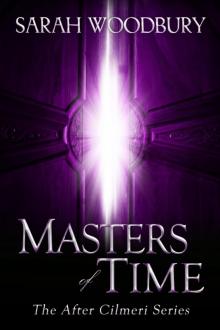 Masters of Time
Masters of Time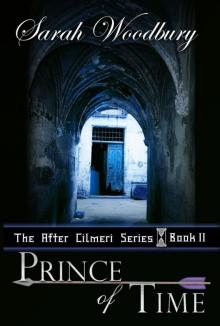 Prince of Time (Book Two in the After Cilmeri series)
Prince of Time (Book Two in the After Cilmeri series)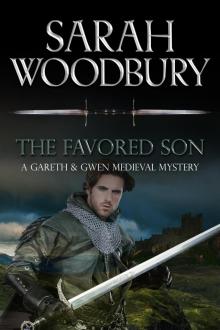 The Favored Son
The Favored Son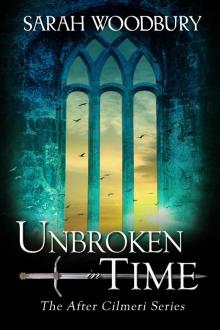 Unbroken in Time
Unbroken in Time![[The Lion of Wales 01.0] Cold My Heart Read online](http://i1.bookreadfree.com/i/03/22/the_lion_of_wales_01_0_cold_my_heart_preview.jpg) [The Lion of Wales 01.0] Cold My Heart
[The Lion of Wales 01.0] Cold My Heart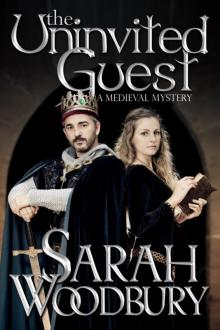 The Uninvited Guest
The Uninvited Guest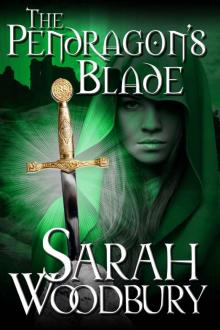 The Pendragon's Blade (The Last Pendragon Saga Book 2)
The Pendragon's Blade (The Last Pendragon Saga Book 2)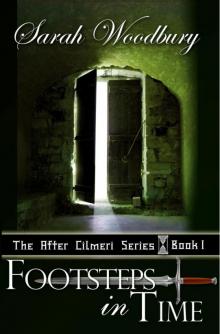 Footsteps in Time
Footsteps in Time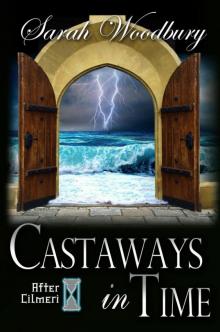 Castaways in Time (The After Cilmeri Series)
Castaways in Time (The After Cilmeri Series) Winds of Time
Winds of Time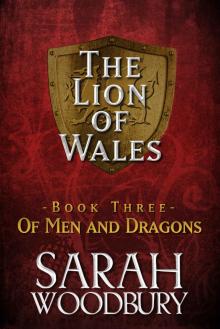 Of Men and Dragons (The Lion of Wales Book 3)
Of Men and Dragons (The Lion of Wales Book 3)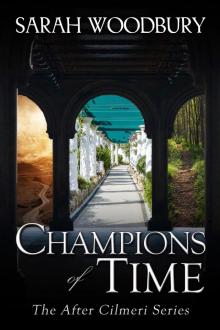 Champions of Time
Champions of Time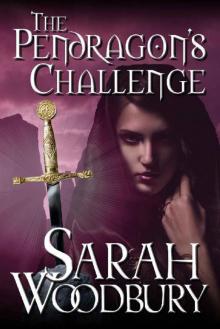 The Pendragon's Challenge (The Last Pendragon Saga Book 7)
The Pendragon's Challenge (The Last Pendragon Saga Book 7)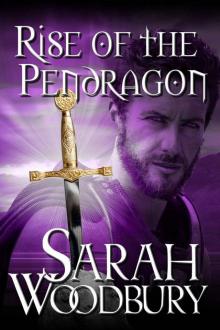 Rise of the Pendragon (The Last Pendragon Saga Book 6)
Rise of the Pendragon (The Last Pendragon Saga Book 6)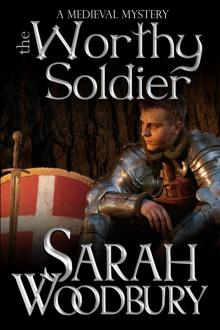 The Worthy Soldier
The Worthy Soldier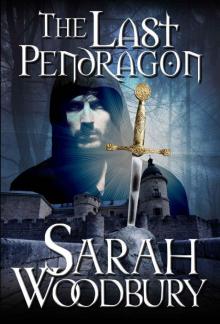 The Last Pendragon (The Last Pendragon Saga Book 1)
The Last Pendragon (The Last Pendragon Saga Book 1)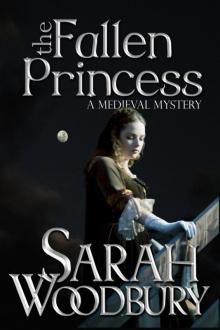 The Fallen Princess
The Fallen Princess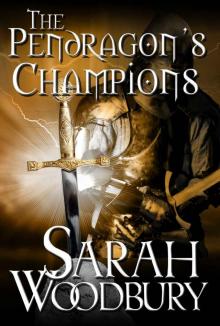 The Pendragon's Champions (The Last Pendragon Saga Book 5)
The Pendragon's Champions (The Last Pendragon Saga Book 5)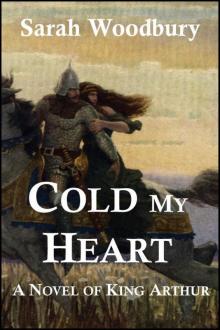 Cold My Heart: A Novel of King Arthur
Cold My Heart: A Novel of King Arthur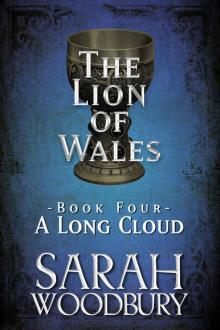 A Long Cloud (The Lion of Wales Book 4)
A Long Cloud (The Lion of Wales Book 4)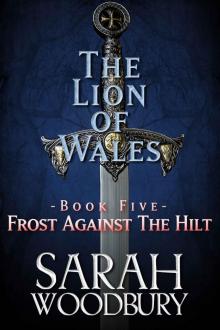 Frost Against the Hilt (The Lion of Wales Book 5)
Frost Against the Hilt (The Lion of Wales Book 5)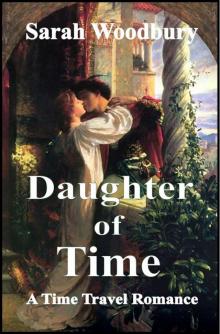 Daughter of Time: A Time Travel Romance
Daughter of Time: A Time Travel Romance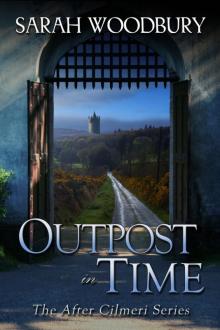 Outpost in Time
Outpost in Time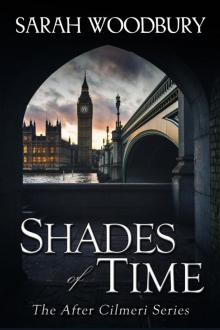 Shades of Time kobo
Shades of Time kobo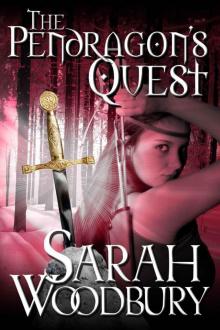 The Pendragon's Quest (The Last Pendragon Saga Book 4)
The Pendragon's Quest (The Last Pendragon Saga Book 4)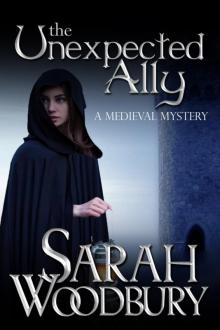 The Unexpected Ally
The Unexpected Ally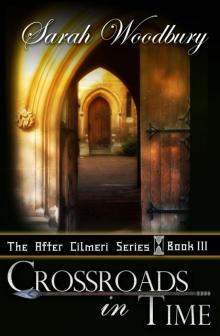 Crossroads in Time (The After Cilmeri Series)
Crossroads in Time (The After Cilmeri Series)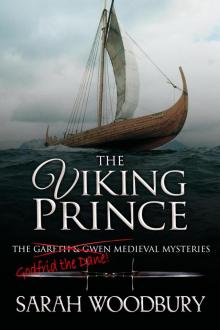 The Viking Prince
The Viking Prince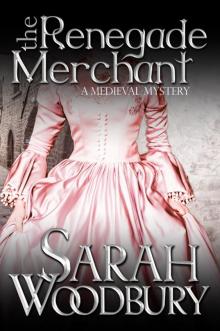 The Renegade Merchant
The Renegade Merchant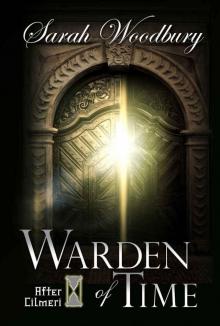 Warden of Time (The After Cilmeri Series Book 8)
Warden of Time (The After Cilmeri Series Book 8)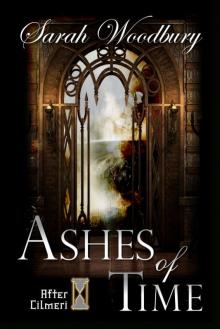 Ashes of Time (The After Cilmeri Series)
Ashes of Time (The After Cilmeri Series)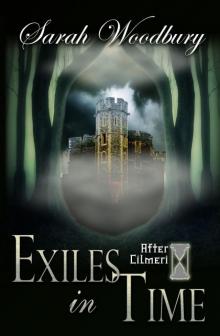 Exiles in Time (The After Cilmeri Series)
Exiles in Time (The After Cilmeri Series)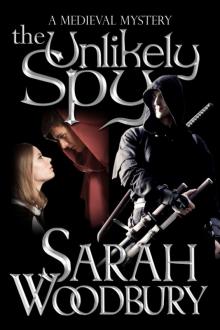 The Unlikely Spy
The Unlikely Spy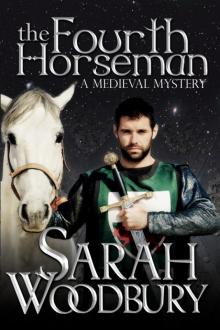 The Fourth Horseman
The Fourth Horseman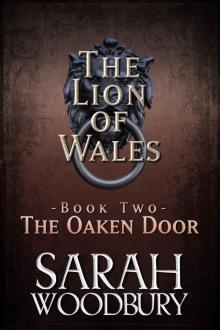 The Oaken Door (The Lion of Wales Book 2)
The Oaken Door (The Lion of Wales Book 2)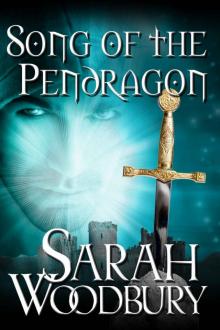 Song of the Pendragon (The Last Pendragon Saga Book 3)
Song of the Pendragon (The Last Pendragon Saga Book 3)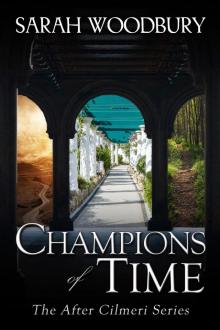 Champions of Time (The After Cilmeri Series, #13)
Champions of Time (The After Cilmeri Series, #13)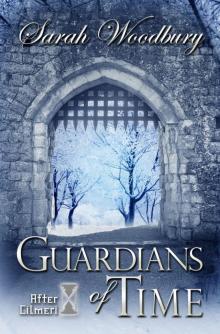 Guardians of Time
Guardians of Time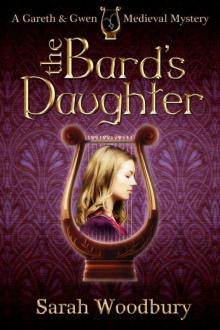 The Bard's Daughter (A Gareth and Gwen Medieval Mystery)
The Bard's Daughter (A Gareth and Gwen Medieval Mystery)